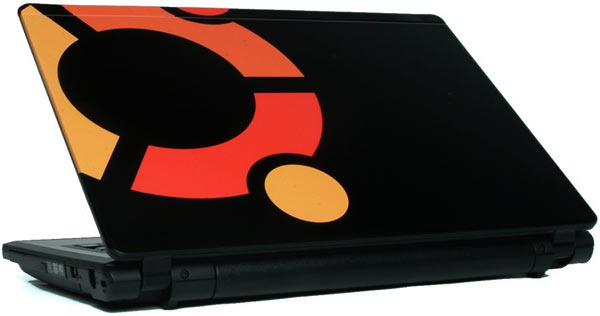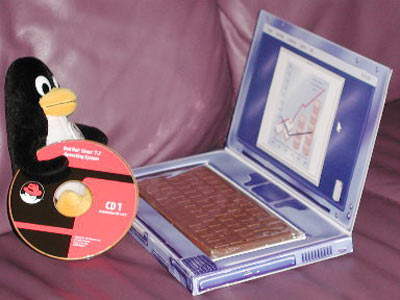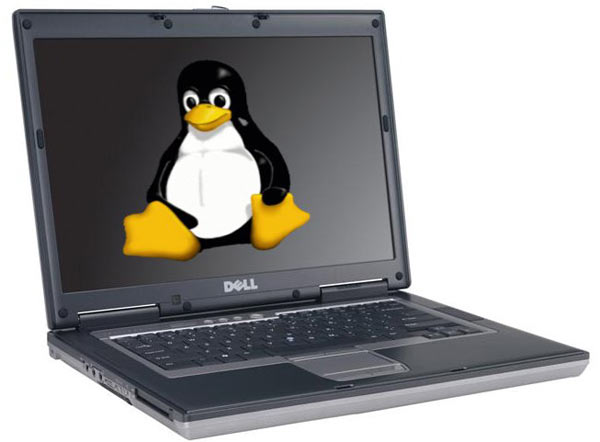Choose to buy a laptop running Linux
Choosing to buy a laptop to use with Linux should be based on the unique characteristics of this open source OS, since it is not yet a plug-and-play world.
Linux usually does not require much hardware, this is one of its most valuable advantages. However, some hardware still doesn't work well with Linux, mainly because of the lack of drivers for them.
However, there are more laptop choices today than ever for Linux users. Here are some guidelines for choosing a laptop that suits open source lovers like you.

main function
Buying a laptop to run Linux also has the same basic considerations as buying a Windows laptop, but it is easier because Linux requires less hardware. In addition, it is necessary to consider the factor specific to all Linux laptops, which is the issue of supporting devices with drivers. Moreover, if you expect your device to run both OS, Linux and Windows, you'll need to pay attention to the requirements of both operating systems.
Operating system
One of the first things you will need to think about is which Linux distribution (often called the distro) you want to use, and whether you want to buy it preinstalled on your laptop or install it yourself. You will also need to decide whether to keep Windows (if already installed) by installing Linux under a scenario called " dual boot " - " dual boot ".
Choosing which distribution will depend on your interests and qualifications. Overall, the best distros for laptops today are: Ubuntu, openSUSE, Linux Mint, and Fedora, or compact versions like Puppy Linux and Damn Small Linux (DSL) for low-end machines. Once you choose a distribution, check its website to be sure about hardware support, even though most of them are supported on today's laptops.
Currently, many manufacturers ship laptops with preinstalled Linux (usually Ubuntu), so these are definitely safe options. The advantages that come with the OS pre-installed machines are drivers (for Linux) that are fully integrated, and they are available on the floor.
Of course, installing Linux itself is not difficult, and it's also convenient to have a dual-boot setup in case you want to keep Windows if it's available. This option also allows you to have a wider range of hardware to choose from.

Processor
The most popular CPUs today are; Intel Atom N450; Intel T4300 Core 2 Duo, Core i3, Core i5 and quad-core Core i7; and AMD Athlon 64 Mobile and Turion 64 X2.
Basically, more multi-core CPUs will perform more tasks at the same time, providing higher performance when running multiple applications simultaneously. Dual core is good for most purposes today. Conventional CPUs reach speeds of between 1.8GHz and 3GHz or more.
Of course, Linux can run well with every processor, even with low power consumption Atom. Even so, it's best to choose Intel Core 2 Duo and (slightly slower) AMD Turion 64 X2 dual-core CPUs, both of which can be good choices for both dual-boot or Linux-only. However, if you plan to use the machine to encode video or technical applications, consider the CPUs like Core i3, i5 or even i7.
System memory
RAM is very important if you plan to use memory-intensive applications such as virtualization, photo or video editing, or if you want to dual-boot. Most laptops now have 2GB of memory - 4GB of RAM; Many machines support higher upgrade capabilities. If you plan to use a 64-bit Linux distro or dual boot, choose 4GB of RAM for flexibility. On the other hand, 32-bit distributions only support 3GB.
Wireless Connectivity
Wireless support is one of the areas that has been the most troublesome for Linux, but fortunately it has now improved. This fall, wireless chip maker Broadcom announced a completely open wireless driver compatible with the operating system. Expected to appear in the Linux kernel later this year or early 2011, the new 802.11 driver will allow Linux versions to fully support many common Broadcom wireless chips.
Ubuntu 10.10, Maverick Meerkat, has included this new driver. Meanwhile, Atheros and Intel are two wireless chip brands known to be best compatible with Linux. Intel Pro 3945 card is one of those compatible wireless cards; Other types can be found in this database.
Graphics
The low-end video cards are fully supported for Linux including Intel GMA 4500MHD, 945GM, 950 GMA, and X3100 GMA, as well as Nvidia Quadro NVS 160M. On the higher end, for video editing and 3D gaming purposes, there are a number of Nvidia Quadro FX 880M, FX 2800M, NVS 3100M, GeForce 9300M GS and GeForce 9300M, as well as Intel GMA X4500 HD and ATI FirePro M7740, ATI Radeon HD 3650 and ATI Mobility Radeon HD4650.
For advanced purposes, it is important to ensure dedicated 3D acceleration is supported in Linux to avoid taking up valuable CPU resources for 3D rendering. Nvidia and ATI are major suppliers of dedicated graphics processors (GPU), but be sure to visit driver pages for Nvidia, ATI / AMD and Intel to ensure you get the right drivers.
Remember, if you're interested in games, there's still limited support for Linux in most game makers. You may want to dual boot and enhance RAM along with the best graphics support you can get. In addition, you will probably have to have a larger laptop, because heat-generating GPUs tend to require more space to cool.
Sound
Most on-board sound cards work well with Linux, allowing users to play music with MP3, WAV, and OGG files, as well as extract CDs and more. However, if you are targeting a high-end sound card, you should make sure that all of its features are supported.
Comppact-disc
Linux supports DVD and other optical disc formats, but if you're looking forward to watching movies on Blu-ray discs, you'll need a Blu-ray optical drive that can read and burn DVDs. Because Blu-ray includes DRM digital rights, you will need to have the latest versions of Mplayer and DumpHD to perform the necessary decoding.
Screen size, hard drive, battery, and keyboard
Considerations for them are the same as for laptops without Linux. Consider your needs and choose accordingly.
Specifying specifications for Linux laptops
Before you decide to buy a laptop running Linux, think carefully about the purpose of using it. This is not only a guide to choosing for you distribution and whether you want to dual boot or not, there are still features that are most important to you. If there are applications that require you to rely on, you should check whether they support Linux or not, or you can choose the equivalent open source software to replace it, otherwise you will have to be sure on dual boot mode.
For users who tend to stick with Linux and have no need for graphics applications, it doesn't necessarily need advanced processing power or graphics support. On the other hand, those who plan to use dual-boot mode will want the machine to be more powerful than traditional Windows users.

Below is a preliminary analysis of some configuration options you should consider.
Operating system
If you want to buy a pre-installed Linux machine, you should find out about the vendors of those machines. If you want to dual boot with Windows, you need to buy both a Linux laptop and request that option, or you can buy a traditional Windows laptop and install it yourself on a Linux distribution. In short, the operating system that you intend to use will be the main factor influencing where you choose to buy your laptop and what specifications you choose.
Wireless
The problem is still annoying for Linux users who have long been wireless connectivity hardware lacking compatibility with Linux. Now, Broadcom's new brcm80211 driver has been extensively integrated, which means you have compatible wireless hardware from Intel or Atheros. Broadcom is also well supported with the latest Maverick Meerkat version (Ubuntu 10.10).
Graphics
This is another area of annoying issues for Linux users, so you'll want to make sure that the graphics card and 3D accelerator on your laptop are fully compatible. Not all vendors support Linux equally well, which is why you need to find out and choose the right provider.
Processor
As the brain of a laptop, the CPU will determine the response and performance in completing the tasks you assign it. If you plan to use Linux only, this is a less important consideration, but if you want dual-boot mode or use high-end applications, you'll want to get more power.
System memory
Most laptops today have at least 2GB of RAM, which can be considered good for most purposes, especially if you only use Linux, this factor is not too big a problem. Of course, if you plan to dual-boot or use a 64-bit version, you'll want more.
Optical drive
It's not a big deal except you plan to watch movies on Blu-ray, in which case you'll need a Blu-ray optical drive that can read and burn DVDs. You must also have more software to decode.
Volume, screen, storage, battery, keyboard, software
These are the factors you want to consider, of course, but they don't involve a separate consideration for Linux. You also need to think about the open source world, about the software you want that can be easily added later without charge.
Tips to buy Linux laptops
You should first learn some specific Linux vendors. They often provide some of the easiest options for you, because they have to deal with compatibility issues first, and you will have ideas about their services and prices.
Among the best laptop vendors out there are Dell, LinuxCertified, ZaReason, EmperorLinux, and System76. And there are other options listed at TuxMobil and LXer.
 It is also a very good idea to check out some Linux user review sites, and report the status on particular laptops and other hardware, usually according to each vendor. Eg:
It is also a very good idea to check out some Linux user review sites, and report the status on particular laptops and other hardware, usually according to each vendor. Eg:
* LinuxQuestions.org
* Linux on laptops
* Linux.com
* TuxMobil
* LinuxCompatible.org
If you are allowed to test your laptop before purchasing it, bring a LiveCD of the Linux distribution you plan to use to run it. The LiveCD allows you to start and run Linux directly on the CD without installing it. That way, you will be more confident that it will work the way you want.
In any case, the following specifications may meet the basic needs of most users.
Ubuntu 10.10, dual boot with Windows 7
" Maverick Meerkat " is the latest version of Ubuntu, and it is also the friendliest version to date. It will also include all major drivers that you probably need. Canonical, the Ubuntu manufacturer, recommends a 32-bit version of the OS for most users. If you choose dual boot - not a bad idea if you are a Linux novice, a gamer or need applications that only run with Windows - you probably want to run Windows 7. Most homes All Linux-based distributions provide dual-boot settings.
CPU: Intel Core 2 Duo 2.4GHz
This is a good choice, the 64-bit dual-core CPU will handle smooth multitasking with whatever the average user can deliver to it. Although you may not need a 64-bit CPU for Linux, you'll be happy to have it if you use dual booting with Windows.
RAM: 4GB
If running 32-bit Linux you don't need a lot of RAM, but if you want to dual-boot you will need a lot of RAM for Windows to play games and run heavy applications.
Wireless
Find the hardware that connects wirelessly from Intel or Atheros, and make sure that the driver supports it in Linux.
Dedicated graphics card
Unless you are very sure that you will never use your laptop beyond the minimum graphics requirements, it is best to buy a laptop with a high-end dedicated graphics card. If you are going to use a dual boot, it is necessary. Most Nvidia and ATI / AMD graphics cards fall into this category, but consider carefully before you buy.